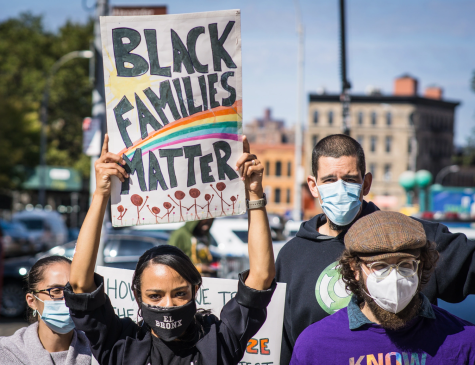Bay Area residents make move to Pacific Northwest
June 28, 2017
Admit it, you’ve thought about moving out of the San Francisco Bay Area.
Chances are if you live here, you have. There’s no shame in that. Many of us even have our minds set on leaving this seemingly forsaken metropolis. In fact, a recent survey by the Bay Area Council revealed that 40 percent of the residents here want to leave as soon as possible.
According to the survey, the main reasons are (unsurprisingly) the insane cost of living, the horrendous traffic, and an historic housing crisis that only seems to be getting worse.
I, for one, am sick of paying $2,200 a month for my shoebox-sized San Jose apartment. It doesn’t take an economist to figure out that existing here is virtually impossible without a six-figure salary, and even that is considered low-income in some areas.
So where are the legions of disillusioned Bay Area residents flocking to? The top two cities are Portland and Seattle. It makes sense why so many Northern Californians are choosing these areas: many of us want to find more affordable housing without sacrificing the West Coast culture we’ve grown accustomed to. Portland and Seattle are perfect in this regard.
Greg Kogura, a Business Major at Seattle University who was born and raised in San Jose, thinks this is a no-brainer. “Why wouldn’t people want to live in Seattle?” said Kogura. “It’s infinitely better than any city in the Bay. It’s a smaller, cleaner version of San Francisco for a third of the cost.”
Seattle, the “Emerald City” is experiencing immigration unlike anything in its history, and it is taking the necessary steps to alleviate overcrowding. The Seattle Times reports that in 2017 alone, nearly 10,000 apartments are scheduled to open – and a whopping 12,500 will be up for grabs in 2018. Clearly, Seattle is prepared for the coming exodus.
So how do locals feel about this? Well, it depends on who you ask.
“I think most [Seattle residents] don’t really mind,” Greg says. “Sure, some people are blaming us for their rents increasing, but most of them are pretty chill about it.”
I personally had a different experience when I visited Seattle last year. Almost every time I told someone I was from California, I was met with an incredulous eye roll and a smug, “let me guess, you work for Amazon?” That didn’t change my perception of Seattle, however, and I still plan on moving there once I graduate.
The same cannot be said of the locals in Portland, claims Stephanie Chavez, a former Union City resident now living in the Portland suburb of Milwaukie. “A lot of Oregonians talk about how we’re ruining their state,” she said. “They constantly complain about how the traffic is just the Californians, nevermind the fact that they’re the ones crashing into trees every time it snows here, since they refuse to buy chains and just take their chances with the weather.”
Chavez claims the state’s antiquated roadways are the cause of its congested traffic. “Oregon doesn’t have the infrastructure to support a big city,” she says. “[Californians] get blamed for the freeway traffic, when there are only two lanes going in each direction on 217.”
She also mentions that Oregonians are fed up with recent rent increases. “A lot of outside companies and investors are coming in and buying houses or apartment complexes, then turning a profit on Oregon’s dime,” she tells me. “People are being priced out [of Portland] much like San Francisco, but there is the overwhelming belief that this would not be possible without Californian ‘transplants’ looking for a cheaper place to live.”
So what about the other 60 percent of survey respondents who said that said they’d prefer to stay in the Bay Area and wait out the crisis? Local governments can’t just sit idly by while poverty and homelessness threaten to destroy the region.
The Bay Area Council claims to be working with city and state officials to draft laws that curve these issues. For example, most of San Jose’s apartments are under rent control, meaning that complexes are not allowed to raise rent prices more than five percent annually. However, with rent prices where they currently are, five percent is still a substantial increase – and there are certain exceptions that allow some apartment complexes to jack up prices, such as evictions or tenants voluntarily breaking their leases.
San Francisco claims to have over 1,200 affordable housing units built by local nonprofits, and prices go as low as 20 percent of the area’s median income. The problem is, these units are in such high demand that the city is required to hold a lottery for potential tenants.
No matter where you stand on this issue, the fact remains that there is no clear solution to the Bay Area’s current dilemma. It’s hard to blame people for seeking refuge in more affordable communities in Oregon and Washington. Until a solution is found, however, the residents of the Pacific Northwest will just have to accept that Californians will keep migrating in droves.
















